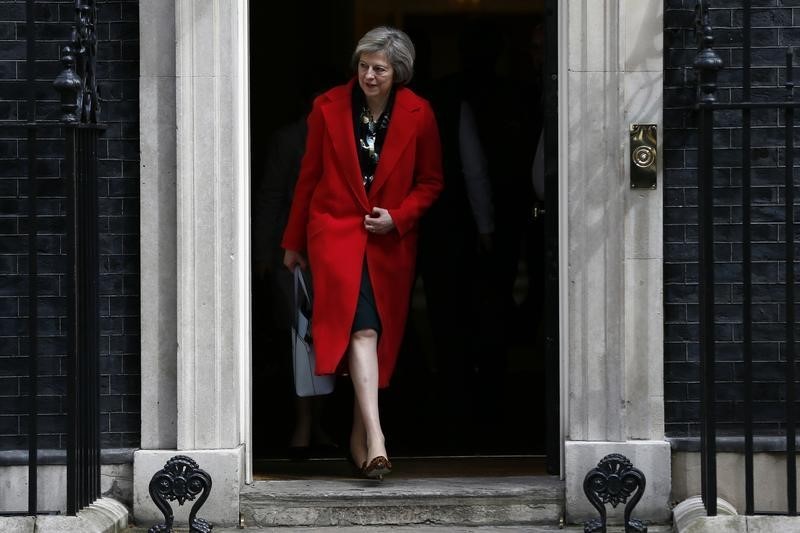LONDON (Reuters) - Prime Minister Theresa May refused to say whether she would vote for Brexit if there was another referendum, repeatedly avoiding giving an answer on an issue that will define Britain's fate for generations to come.
Although May has talked up the "promise of Brexit" since gaining power last year, she had, in the run-up to the June 2016 referendum, quietly backed staying in the European Union.
She won the top job after David Cameron, who had also campaigned to remain, resigned in the chaos following the shock result of the vote. She has ruled out holding a second referendum on the final deal of the terms of Brexit, despite calls for one from some pro-EU MPs.
Asked three times in an interview if she had changed her mind since then, she did not answer directly, saying she wouldn't engage with hypothetical questions and said her job was now to deliver what the people had voted for.
"I voted remain for good reasons at the time, but circumstances move on and I think the important thing now is that I think we should all be focused on delivering Brexit and delivering the best deal," she said on British radio station LBC on Tuesday.
The United Kingdom remains deeply divided over Brexit which most senior politicians view as the most important decision Britain has taken since World War Two.
In the June 23, 2016 referendum, 17.4 million voters, or 51.9 percent of votes cast, backed leaving the EU while 16.1 million voters, or 48.1 percent of votes cast, backed staying.
Britain has just over one year to negotiate the terms of the divorce and the outlines of the future relationship before it is due to leave in late March 2019. Both sides need an agreement to keep trade flowing between the world’s biggest trading bloc and the fifth largest global economy.
But the other 27 members of the EU combined have about five times the economic might of Britain. They also have a strong incentive to deny the UK a deal so attractive it might encourage others to follow the British example.
May, who said she voted to remain, called a general election earlier this year in a bid to unite the country around her vision for Brexit. However, she lost her parliamentary majority, jeopardising her premiership.
Pressed on whether she would now vote leave, she said she would look at everything and come to a judgement, but stressed that there would not be another referendum.
Minister Damian Green, who is effectively May's deputy, was asked on BBC Newsnight the same question. He said that it would have been better had the public voted to remain, but there would not be another referendum and it was his job as a democrat to work towards making Brexit a success.
Under the headline "Theresa Maybe", The Sun, Britain's most read newspaper, said Brexiteers were offended by May's response.
